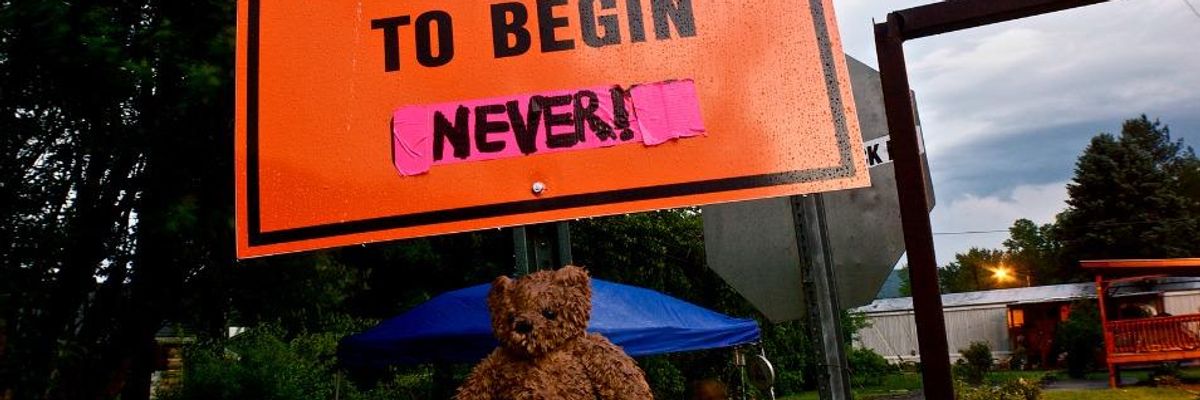In defiance of a corporate lawsuit over a proposed fracking wastewater injection well, the citizens of Grant Township, Pennsylvania on Tuesday evening adopted the country's first municipal charter establishing a local bill of rights--a document which codifies environmental and democratic rights, and bans such drilling activity as a violation of that pact.
"The people of Grant Township spoke loud and clear: They have rights, and they will protect those rights," said Chad Nicholson of the Community Environmental Legal Defense Fund (CELDF), who served as a consultant to the commission that drafted the charter.
Grant Township initially adopted a Community Bill of Rights in June 2014 in an effort to halt the drilling project but was overruled when a court sided with Pennsylvania General Energy Company (PGE) and the Pennsylvania Independent Oil and Gas Association (PIOGA), which argued that the rights of the fossil fuel companies trumped those of the citizens.
CELDF explains: "In its lawsuit, PGE claimed that it had a 'right' to inject wastewater into the Township. PIOGA has also declared that there is 'no constitutional right to local self-government' or to be free from the harms associated with oil and gas production."
However, Tuesday's vote, which called for a "transformation of the community into a home rule Township," now invalidates most of that court ruling, according to CELDF.
Local efforts to prohibit extraction activities, such as fracking, over concerns of its impact on air and drinking water quality have faced fierce resistance from both drilling companies and state governments. In Denton, Texas, for example, a community fracking ban was overturned after the state government passed a law barring such ordinances.
This has forced grassroots groups to devise increasingly creative solutions in order to maintain sovereignty in the face of what campaigners say are deep pocketed--and politically connected--corporate interests.
Nicholson notes that close to 200 communities across the U.S. have advanced some form of community rights, though many are amendments to existing charters. The Grant Township Bill of Rights is the first written entirely on the basis of asserting and protecting "the right to clean air and water, the right to be taxed fairly, and the right to local community self-government."
"This isn't David versus Goliath," he added. "This isn't just one community standing up to say 'no.' Grant Township is joining with communities across the country who are standing up collectively and saying to government and corporations, 'We're no longer willing to be fracked, poisoned, and polluted.' They are mobilizing against a system of law that empowers corporations over communities, and empowers government to preempt communities from protecting their air and water. Communities are saying this is not acceptable, it's not sustainable, it's not democratic, and it's going to change."

